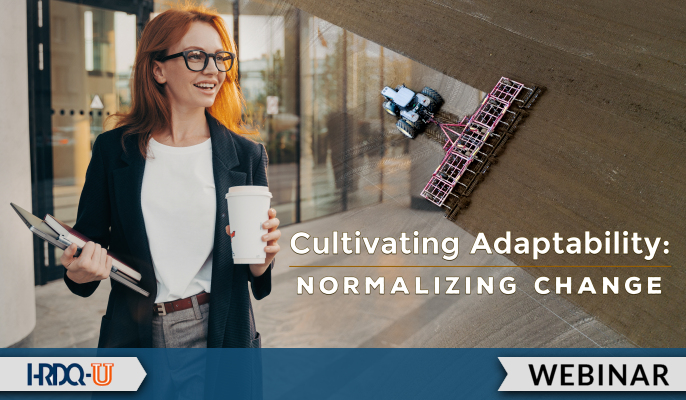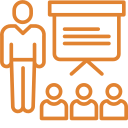Why Do Organizations Struggle with Adaptability to Change?
Organizations struggle because individuals struggle with change. Individuals struggle with change because staying the same is safer, as far as the body is concerned. The animal in us craves the familiar, the predictable, and the known. The moment we decide to do something different, and we can no longer predict the outcome based on past experiences, we will feel uncomfortable. That uncomfortable feeling is the body telling us we are in unfamiliar territory, and most people unconsciously use their feelings as a barometer for change. They resist change because “they just don’t feel like it” or “it just doesn’t feel right.” It is uncomfortable, and we get to avoid that discomfort of change if we stay the same.
Now, if we add to this situation the stress hormones, which according to the American Institute of Stress are on the rise, we make this resistance of adaptability to change even stronger. Here are just a few stress statistics, according to the Stress in America Survey 2022.
- 81% of Americans who participated in the poll were stressed out due to Supply Chain issues.
- 87% of Americans are stressed due to the rising inflation in the country, up from 59% in August 2021 and 58% in June 2021.
- 80% of Americans are tense and stressed about possible Russian cyberattacks or nuclear threats to the US.
- 69% of Americans fear that World War III could break out, and we are in the genesis phase of it.
- 65% of Americans responded that they were stressed about money and the economy.
Can We Increase Our Tolerance for Change?
We have now exacerbated the problem of individuals being resistant because stress is a survival response, and when we are in survival, it is not a time to create, it is not a time to try new things, it is not a time to collaborate, it is not a time communicate, it is a time to run, fight, or hide.
Have you ever noticed that on those “bad days” when you are incredibly stressed you have little tolerance for disturbances in your environment? We lose our cool because our children did not do the dishes, or we flip our lid because somebody forgot to clean off the dry-erase board when they were done, which we had all agreed we would do! This build-up and sustained state of stress that individuals are experiencing lowers their tolerance for change.
In conclusion, businesses must become adaptable and experts of change to thrive in an ever-changing world. To do that, individuals need to be adaptable, and to do that, they will need to become experts in self-regulation. They will need to be equipped with the knowledge and techniques of moving from a state of survival (stress) to a state of creation (flow) despite the conditions in their environment.
The good news is we have all the neurological and biological hardware to do this.
















